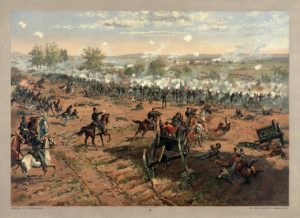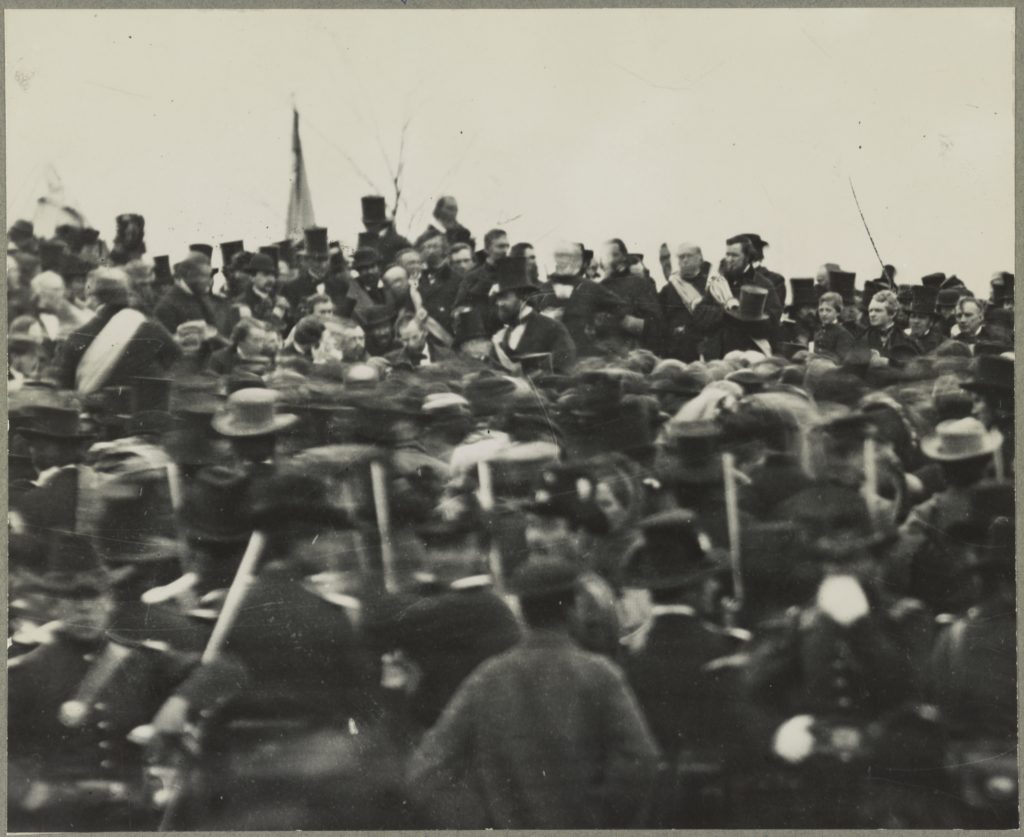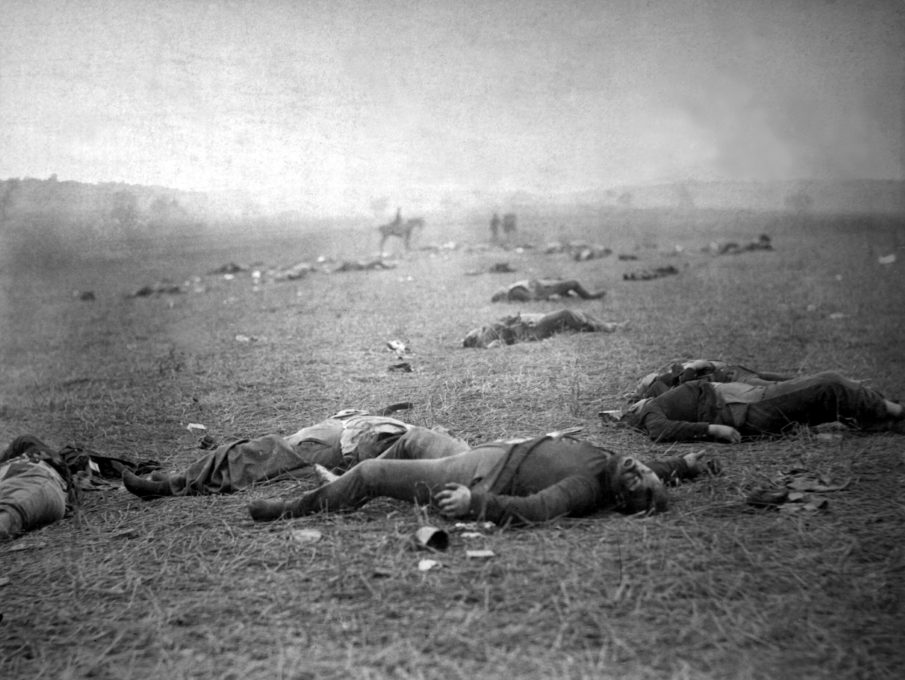November 19, 1863 — The battle of Gettysburg in Pennsylvania had raged on that field just four and a half months prior. Abraham Lincoln, president of the United States, stood on the same ground where General Robert. E. Lee had fought General George G. Meade with their respective Confederate and Union armies. On this single battle, there were over 23,000 casualties on the Union side and 23-28,000 on the Confederate side. Some would describe it as the turning point of the war in the Union’s favor; everyone would realize it to be the bloodiest battle in American history to date. 3,155 Union Soldiers were killed, and though the Confederate Soldiers’ deaths are not so well recorded, it is likely that more Americans died in these three days than in both recent Iraq and Afghan wars combined.
 All of these casualties were Americans, and this is why the Civil War was so devastating. Over 750,000 men were killed (higher than long-standing previous estimates), which meant that during this war, there were an average of 420 combat deaths a day. This means that the Civil War cost more American military lives than World Wars I and II, the Vietnam War, the Korean War, the American Revolution, the War of 1812, the Mexican-American War and GWOT all combined.
All of these casualties were Americans, and this is why the Civil War was so devastating. Over 750,000 men were killed (higher than long-standing previous estimates), which meant that during this war, there were an average of 420 combat deaths a day. This means that the Civil War cost more American military lives than World Wars I and II, the Vietnam War, the Korean War, the American Revolution, the War of 1812, the Mexican-American War and GWOT all combined.
The main reason for this is that Americans were fighting Americans. There has been recent debate as to the “veteran” status of Confederate soldiers, but they were no doubt all American citizens–that was the whole point of the Union not allowing them to divide and create their own nation. But this aspect immediate doubles the American casualties in every battle, as neighbor is fighting neighbor. The country was undoubtedly in more peril than ever before or since.
Lincoln stood on that same field months later, weary from leading the United States in its most trying time, literally fighting a mild case of smallpox, and facing a battered and tired military. His speech solidified equality as an inherent American value, and honored those that died at Gettysburg. Since then, the speech has been etched into American culture and is central to our nation’s history.
 Lincoln’s address:
Lincoln’s address:
Four score and seven years ago our fathers brought forth on this continent, a new nation, conceived in Liberty, and dedicated to the proposition that all men are created equal.
Now we are engaged in a great civil war, testing whether that nation, or any nation so conceived and so dedicated, can long endure. We are met on a great battle-field of that war. We have come to dedicate a portion of that field, as a final resting place for those who here gave their lives that that nation might live. It is altogether fitting and proper that we should do this.
But, in a larger sense, we can not dedicate—we can not consecrate—we can not hallow—this ground. The brave men, living and dead, who struggled here, have consecrated it, far above our poor power to add or detract. The world will little note, nor long remember what we say here, but it can never forget what they did here. It is for us the living, rather, to be dedicated here to the unfinished work which they who fought here have thus far so nobly advanced. It is rather for us to be here dedicated to the great task remaining before us—that from these honored dead we take increased devotion to that cause for which they gave the last full measure of devotion—that we here highly resolve that these dead shall not have died in vain—that this nation, under God, shall have a new birth of freedom—and that government of the people, by the people, for the people, shall not perish from the earth.”
Abraham Lincoln was actually not the featured speaker that day. Another man, Edward Everett, spoke for two hours there but would later tell Lincoln that, “I wish that I could flatter myself that I had come as near to the central idea of the occasion in two hours as you did in two minutes.”
Images courtesy of Wikimedia Commons.
Already have an account? Sign In
Two ways to continue to read this article.
Subscribe
$1.99
every 4 weeks
- Unlimited access to all articles
- Support independent journalism
- Ad-free reading experience
Subscribe Now
Recurring Monthly. Cancel Anytime.













COMMENTS